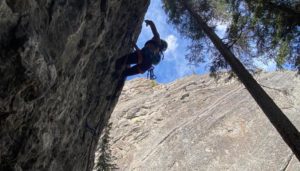Battle over Mont Blanc’s Status
It isn’t surprising that two towns, Italy’s Courmayeur and Chamonix in France, are applying to have the area’s alpinism designated under the UNESCO Intangible Cultural Heritage List. This designation, now shared by such treasures as Viennese Coffee House Culture, Spanish Human Towers, The Argentine Tango and Czech Falconry, protects and recognizes crafts and activities rather than places.
The Mont-Blanc massif is the most storied in the history of mountaineering. In its long history, climbers have discovered and developed mountaineering’s techniques and ethos on its ice and rock. It has naturally been the setting of battles between climbers with differing philosophies. Now it is the scene of competing concepts of its global significance.
It isn’t surprising that two towns, Italy’s Courmayeur and Chamonix in France, are applying to have the area’s alpinism designated under the UNESCO Intangible Cultural Heritage List. This designation, now shared by such treasures as Viennese Coffee House Culture, Spanish Human Towers, The Argentine Tango and Czech Falconry, protects and recognizes crafts and activities rather than places.
The UIAA Mountain Protection Commission, however, is not in favour of this and supports Pro Mont Blanc, a separate attempt led by 25 environmental groups to designate the area as a UNESCO World Heritage site. This is the designation of Yosemite National Park. “The registration of two applications at the same time – one concerning material heritage (natural and cultural) and one concerning intangible heritage – may doom the chances of any successful World Heritage status for this most deserving site,” said UIAA functionary Linda McMillan.
“Basing the World Heritage merit of the Mont Blanc Range simply on providing a platform for alpinism and mountaineering activities is inappropriate,” McMillan said.
The situation is complex. Climbers enjoy relatively free access to Yosemite Valley, despite its status as a UNESCO World Heritage site, but the designation has been used an excuse to close some other areas to climbers. The intangible status will not protect the actual mountains, just the activity of climbing them, opening up potential for exploitation of an already heavily used and rather small resource. Climbers, on the other hand, have much to be wary of when they consider the records and priorities of environmental groups when it comes to climbing.


